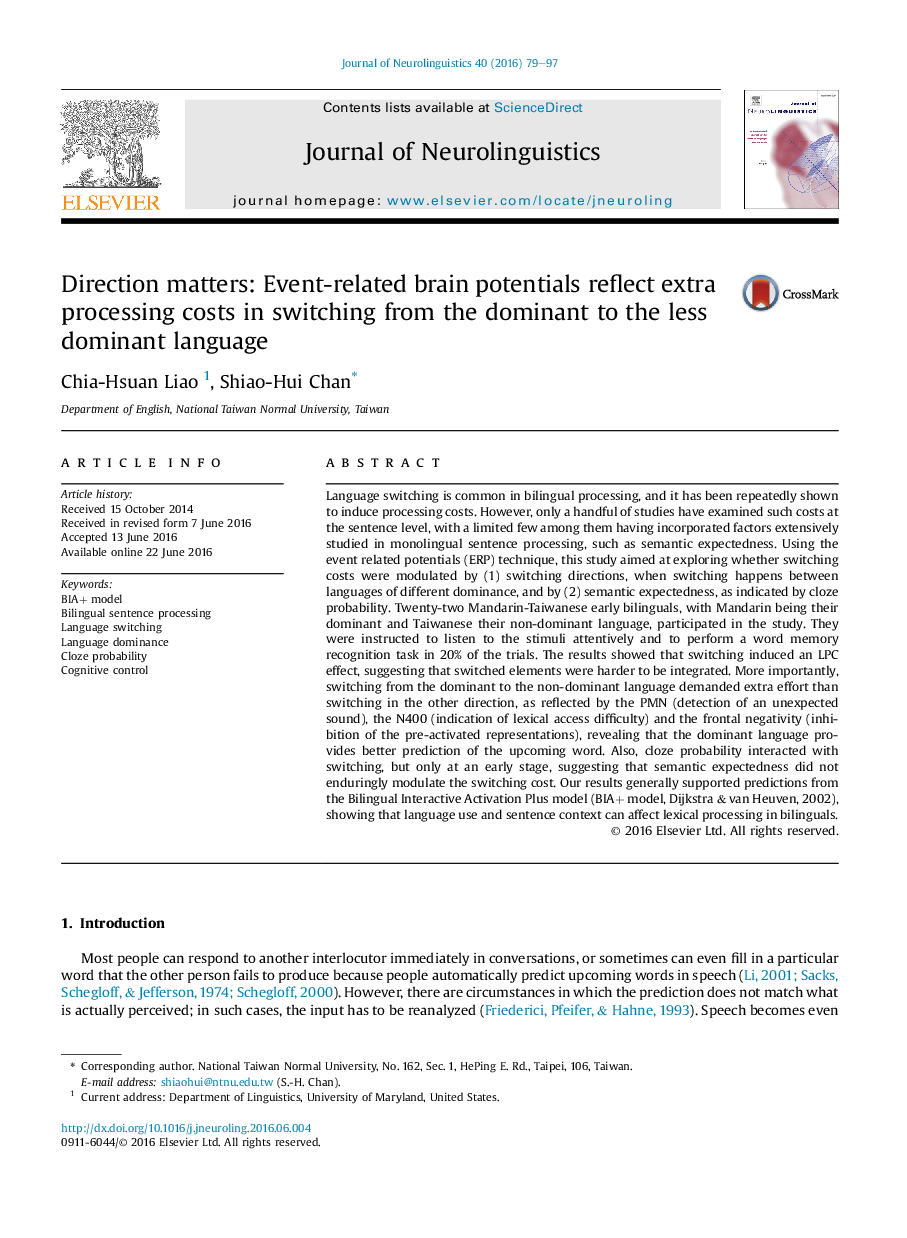| Article ID | Journal | Published Year | Pages | File Type |
|---|---|---|---|---|
| 911730 | Journal of Neurolinguistics | 2016 | 19 Pages |
•Language switching is examined at sentence level in auditory modality.•Language use and sentence context can affect bilingual lexical processing.•Switching into a non-dominant language requires more effort than the other direction.•Cloze probability modulates switch costs at an early stage.•Our results generally support the BIA + model.
Language switching is common in bilingual processing, and it has been repeatedly shown to induce processing costs. However, only a handful of studies have examined such costs at the sentence level, with a limited few among them having incorporated factors extensively studied in monolingual sentence processing, such as semantic expectedness. Using the event related potentials (ERP) technique, this study aimed at exploring whether switching costs were modulated by (1) switching directions, when switching happens between languages of different dominance, and by (2) semantic expectedness, as indicated by cloze probability. Twenty-two Mandarin-Taiwanese early bilinguals, with Mandarin being their dominant and Taiwanese their non-dominant language, participated in the study. They were instructed to listen to the stimuli attentively and to perform a word memory recognition task in 20% of the trials. The results showed that switching induced an LPC effect, suggesting that switched elements were harder to be integrated. More importantly, switching from the dominant to the non-dominant language demanded extra effort than switching in the other direction, as reflected by the PMN (detection of an unexpected sound), the N400 (indication of lexical access difficulty) and the frontal negativity (inhibition of the pre-activated representations), revealing that the dominant language provides better prediction of the upcoming word. Also, cloze probability interacted with switching, but only at an early stage, suggesting that semantic expectedness did not enduringly modulate the switching cost. Our results generally supported predictions from the Bilingual Interactive Activation Plus model (BIA+ model, Dijkstra & van Heuven, 2002), showing that language use and sentence context can affect lexical processing in bilinguals.
